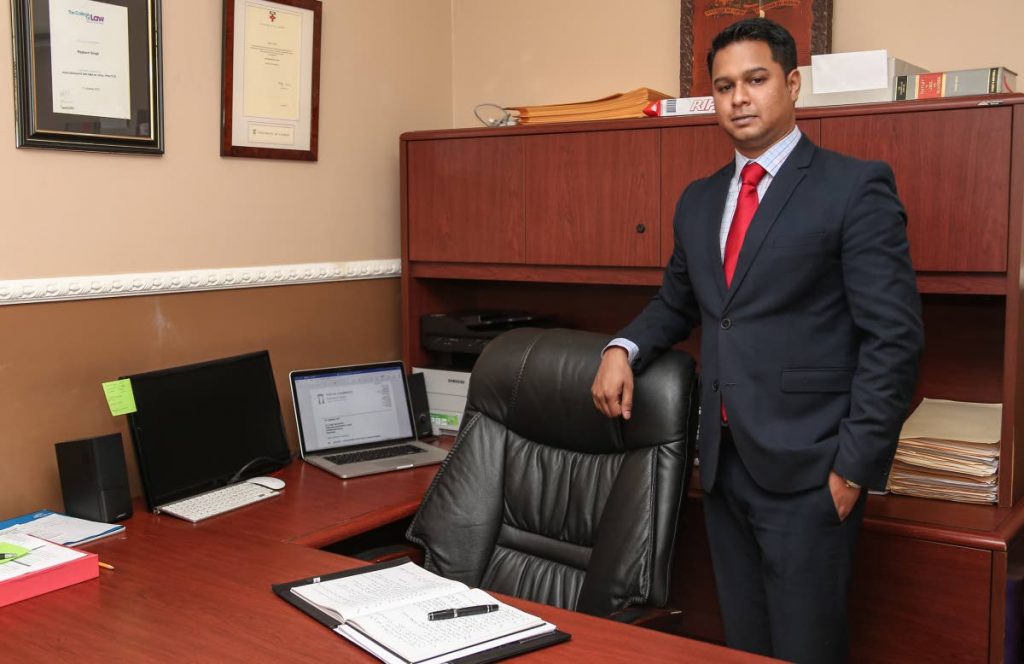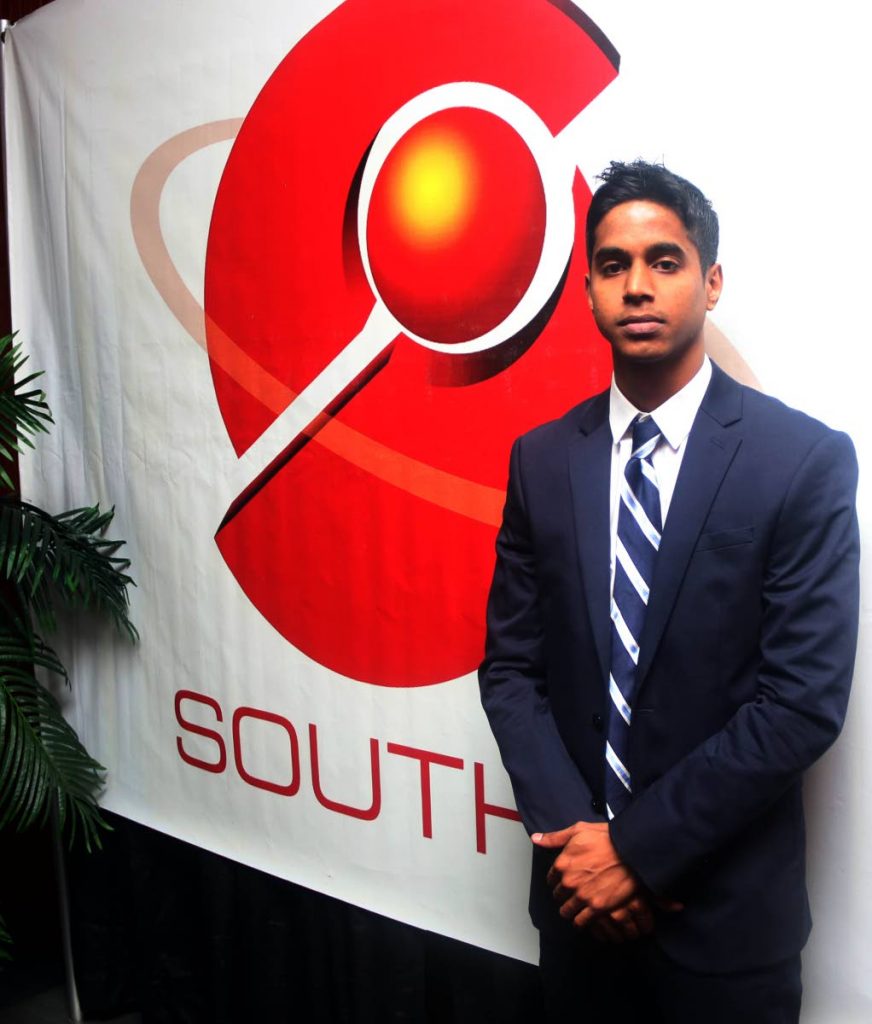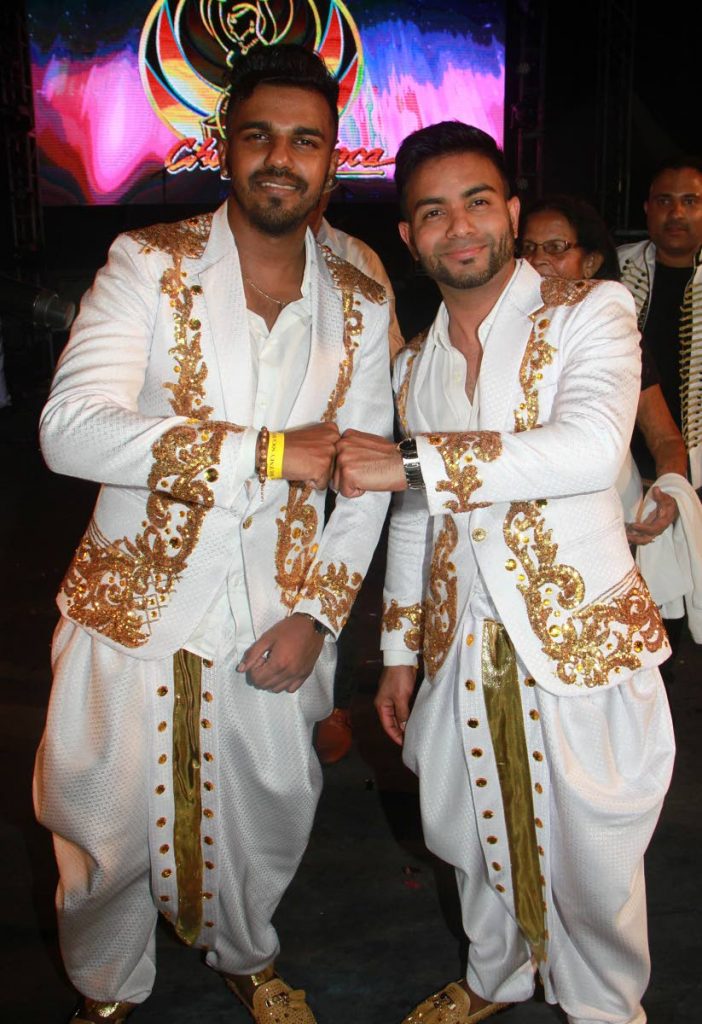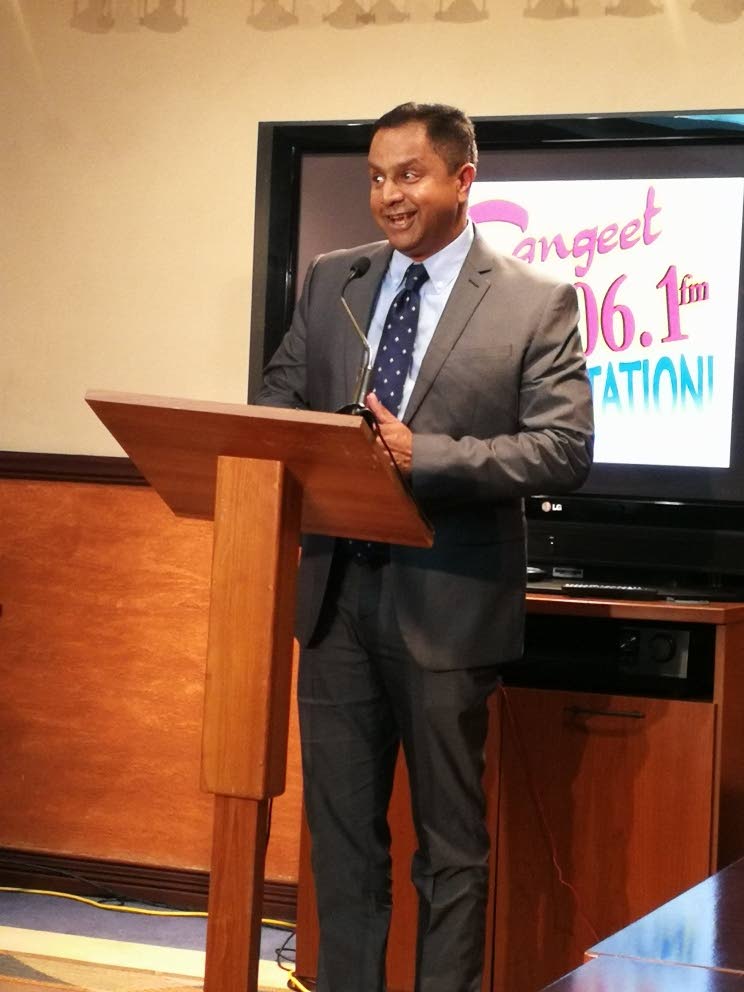Southex dynasty

Brothers Rajkavir and Samir Singh, directors of Southex Event Management Co (Southex), the company that has been producing the Chutney Soca Monarch (CSM) competition for the past 24 years, are now taking a more active role in the running of the business.
“While our father (George Singh) has passed the ‘torch’ to us, he maintains an active role in Southex, holding the title of CEO, providing a guiding hand as we slowly take the reins. We have put together a succession plan with respect to the continuation of Southex and maintaining the excellence in service it is so well known for,” Rajkavir told Business Day.
This includes maintaining the standard of CSM as one of the best produced shows in Carnival.
"(It) will continue to be long after our father decides to step back and allow us to put our own personal touch on the event,” said Samir, who plays a major role in the operations, production management and logistics of the company. The finals of the CSM will he held on February 16, at Skinner Park, San Fernando.
But with tight finances in a struggling economy, and a drop in sponsorship and government subventions, the brothers say it is a struggle to put on the show.
“It seems as though we are still faced with the questions as to why Government continues to fund prizes for this event. Our view is such that the CSM has become a staple in the melting pot of Carnival, and more particularly, it is one of two annual events that assist in generating new music content, artiste development and general exposure for the emerging talent,” Samir explained.
And, according to Rajkavir, the show cannot go on without subventions and sponsorship. “The truth is that the organisers of the event can’t afford to put on a production as is done due to the sheer size and expense involved in such an event without the grant of prize money from the Government.” He said a look at the development of the CSM over the past 23 years will show a steady increase in the quality and visibility of the event, which is closely tied to “government subventions and sponsorship contracts with both State and private companies”.

During the earlier years of the CSM, Samir said, Southex would have made a profit. “The event had no government support whatsoever and the first prize was a car donated by private sector sponsors… It has now become something, that is in my opinion, bigger than Southex, and while we may not make a profit now, we believe that its importance far outweighs its ability to earn.”
Fighting piracy, government support
Rajkavir said the viability of the event requires a level of maturity from all stakeholders. “The intellectual property of CSM and many of Trinidad’s Carnival events have a lot of value which can be leveraged to create growth and profit, as well as significant investment from both local and international bodies."
Piracy, however, shows how people do not understand the value of intellectual property and is a challenge to its promotion and profitability.
"Piracy has created a serious barrier to most events that market an international stream or lease of its broadcast rights, apart from that, people just simply won’t pay for what they feel they should get for free," he said. "Whereas in countries all over the world they have managed to establish services dedicated to the streaming of copyrighted content for a fee, services to which we all subscribe. There is a general lack of, or downright refusal, to reciprocate when it comes to local content, hence my opinion that the general market does indeed need to mature before we, or companies such as ours, are able to benefit from these avenues of income.”
And Samir points out the additional benefits of job creation and the marketing of TT as a tourism destination..

“The event itself sees the employment of no less than 1,000 people during the night of its final and is viewed, according to our records, by 100,000 people in more than 50 countries around the world. It is clear in our mind that government involvement is crucial, not just to these artistes or the preservation of the artform but to the general exposure of Trinidad and Tobago.”
Samir emphasised that government subventions go strictly toward the prizes, while the company depends heavily on sponsorship and investments for other expenses. “This grant (subvention) goes directly to the artistes who compete in these shows… There must be a clear distinction drawn between this grant of money to the artistes themselves and the sponsorship contracts entered into between Southex and other entities, both private and State alike. Sponsorship offered is not a free grant of money, but instead is a contractual agreement whereby in return for money invested we would have certain requirements and demand returns through a multitude of terms and conditions specific to each and every agreement.”
Even for this year's competition, government subvention remains essential for the prizes, which under the 2010-2015 administration of the People's Partnership reached a high of $2 million for the winner. This slumped significantly in recent years under the PNM government which cut back on expenditure due to declining revenues in a recession.
Rajkavir told Business Day, “Last year the total prize money was $300,000 first prize. We are yet to confirm this year, as we are trying to increase based on proposed but unconfirmed subventions.” He highlighted, “Southex does not receive or handle any of this money (subvention) whatsoever… Southex is and has always been compliant with the terms and conditions set out in each and every one of its contractual arrangements and will continue to do so.”
The future business model
This year, Southex will also take over the management of the popular UWI all-inclusive fete. Rajkavir believes the general model of an all-inclusive event works well in the Carnival market because everything is readily available. “Secondly, the model is beneficial from the perspective of organisation, in the sense that staff need not worry about the issue of collecting money at bars, gates or having to tally and balance proceeds nor arrange for the safe transportation of same.” He said it also allows event organisers to see the returns almost immediately and gauge the ability to provide exactly what is needed for its patrons. “It also has the ability to allow organisers to collect all income from the simple sale of their tickets and be able to assess the budgets on entertainment and infrastructure without fear of breaking the bank, so to speak, although not always in recent times.”
Samir has noticed some key factors people look at when deciding on whether or not to attend an event, which helps to shape his company’s business model. Ticket price, location, event reputation, type of people attending, design and concept. “When it comes to Carnival and the entertainment industry on a whole, Southex’s business model is always evolving and adapting to the trends that are arising nowadays. We make sure and keep abreast of new technology and emerging equipment in the entertainment industry, this is an area that is always developing. It is also important to note that with Trinidad being such a small island and having so many competitors in the entertainment industry, maintaining and creating business relationships is a given. The only way to succeed and stay relevant is to maintain these relationships and foster a professional courtesy with other event companies in the business.”

Although the brothers have both chosen to follow their own career paths, they appreciate the fact that their father had insisted they have a working understanding of how Southex is run. Rajkavir, 31, is a practising attorney, and 27-year-old Samir is the managing director of his own company, DimitCo Ltd, which offers asphalt sealcoating and resurfacing services for both residential and commercial applications. But they practically grew up in Southex.
“We began our journey in Southex from the ages of 15 (respectively). Our father has always prided himself on hard work and excellence and ensured that we also understood that very concept. He ensured that we spent adequate time in each area of the business, from the lowest rung to where we currently sit. It’s this intricate knowledge of the business that we feel allows us to adequately step in and take Southex into a new era having and continuing to translate from one generation to the next,” Rajkavir explained.
Legacy enterprise
“Southex has always been a very diverse company in terms of the type of work we take on... Southex is not only involved in Carnival, we are heavily involved in the equipment rental business for events, making us one of the largest suppliers of truss, exhibition booths, and temporary infrastructures, both indoor and outdoor. Other key services that we offer are marketing and advertising, event and production management, design and concept, and finance and budget management.” Samir, highlighting that although CSM is one of the company’s “landmark” events, said Southex has been behind other well-known events, expositions, conferences and productions throughout TT, among them the Trade and Investment Conference, The 5th Summit of the Americas, the Carnival Messiah production, and Carifesta.
Now that Southex is in the hands of a new generation, what’s next?
Samir shares their vision with Business Day.
“We intend to not only continue maintaining the success and footprint of Southex in Trinidad and Tobago, but also establishing a foothold abroad as well. We have had numerous conversations about establishing Southex in the greater Caribbean region as well as Canada and the US… We intend to continue developing CSM and the artform to heights far greater than those of today. The culture of Trinidad and Tobago is one that can and has easily made inroads into the greater markets around the world and this has always been one of our dreams. The future is bright for Southex and we foresee major growth, expansion and diversification.”

Comments
"Southex dynasty"